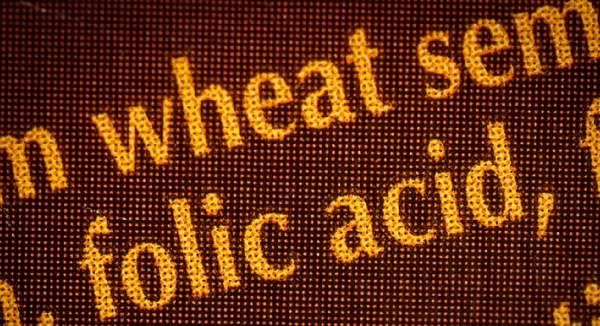Feeding Potential
Why you can trust Nutri Advanced Every article on our site is researched thoroughly by our team of highly qualified nutritionists. Find out more about our editorial process.
Amanda Hamilton, speaker at Nutri Advanced’s ‘The Science of Health’ in June 2019 and author of ‘The G-Plan Diet’, discusses why making the right gut healthy nutritional choices from conception to toddlerhood, mothers can make a significant difference to their children's long-term health.
Research shows that children inherit our microbiome, so I recommend that mothers to be, or those being proactive for preconception health, not only address any underlying health issues, but work on their inner health.
This advice can include, but is not limited to, introducing live bacteria supplements and fermented foods, increasing prebiotics, reducing sugar and increasing diversity of plant-based foods - all of which may feel overwhelming to a woman who is exhausted and heavily pregnant. So, if you are working with a client in this situation, tailor advice carefully.
Once the baby arrives, there’s the first 1000 days of a child’s life, and then there’s what you do after. If a child has optimal microbial exposure, he or she will develop a healthy microbiota which has been shown to interact with the immune system and support healthy immune responses in later life. Any disruption of this can have significant implications down the track.
The adaptations that occur to organs during this critical window are thought to be because of modifications that change how the genes are expressed. Gene expression may be amplified or silenced, turned up or down, by the presence of certain stimuli. It is early days in research, but the key areas of influence are:
Metabolic – processes may be set during early life, determining how the body learns to break down, absorb and use nutrients for lifelong growth and development. [1]
Immune – immune system development may be influenced, affecting the future risk of asthma and allergic diseases.[2]
Cognitive – brain development may be influenced, with potentially long-term effects on cognitive function and behaviour.[3]
A perfect 1000 first days of life would read like this - a healthy mother with a healthy microbiome delivers her child naturally; she breastfeeds, weaning only on natural, organic foods; she lives close to nature; she avoids the use of antibiotics - even exposure to household pets is thought to be of benefit to the biome.
As you can imagine, it is a subject where real attention needs to be given about how to deliver the advice - there is what the science says, and then there is real life! Mothers understand guilt. Best laid plans will inevitably be cast aside so ensure that common sense and a sense of perspective are put firmly on the menu.
Amanda Hamilton has been one of the UK's most established nutritionists for over a decade with a career that has included more than eight internationally syndicated TV series and four books, the latest of which ‘The G-Plan Diet’ became a number one Amazon best-seller. Amanda writes several columns for national titles and is a regular on BBC TV and radio.
Day to day, Amanda remains at the helm of her retreat business and licensed spa programmes, these include her signature wellness menus and programmes in Sardinia, and regular hosted events in Spain, Scotland and England. She runs a clinic from her base in London and is also a Pilates teacher.
At ‘The Science of Health’, Amanda drew on her own experiences to speak on how to engage and support client compliance with nutritional advice and therapeutic diets. She also created a delicious gut-friendly lunch menu for the event.
Find out more about ‘The Science of Health’ and purchase the full seminar recording.
References:
1. Lillycrop KA. Effect of maternal diet on the epigenome: implications for human metabolic disease. Proc Nutr Soc 2011;70(1):64-72.
2. Martin R et al. Early life: gut microbiota and immune development in infancy. Benef Microbes 2010;1(4):367-82.
3. Schlotz W and Phillips DI. Fetal origins of mental health: evidence and mechanisms. Brain Behav Immun 2009;23(7):905-16.
This website and its content is copyright of Nutri Advanced ©. All rights reserved. See our terms & conditions for more detail.
Nutri Advanced has a thorough research process and for any references included, each source is scrutinised beforehand. We aim to use the highest value source where possible, referencing peer-reviewed journals and official guidelines in the first instance before alternatives. You can learn more about how we ensure our content is accurate at time of publication on our editorial policy.
Most Popular Articles
-
7 Surprising Ways To Support Your Magnesium
If you are displaying signs of a magnesium deficiency, here are 7 ways to boost your magnesium levels that are easy to incorporate into your daily life. -
5 Best Vitamin C Supplements Picked By Our Experts
Learn more about the different types of vitamin C, the different benefits you get from different types, and what you get for spending more on a good supplement. -
Top 5 Vitamins For Energy And Tiredness Picked By Our Experts
The 5 best and most important vitamins for energy & tiredness including B vitamin food sources & best supplement forms for energy. -
Benefits of Myo-Inositol for Polycystic Ovary Syndrome (PCOS)
In this research review article, we take a closer look at a lesser-known natural compound called myo-inositol that has been found to have significant potential to improve many of the prevalent features of PCOS. -
Top 10 Reasons to Give Your Kids Omega-3
Read the top 10 reasons that kids should have plenty of Omega-3- an essential fatty acid- including for depression, brain function, sleep & reading/maths skills.














